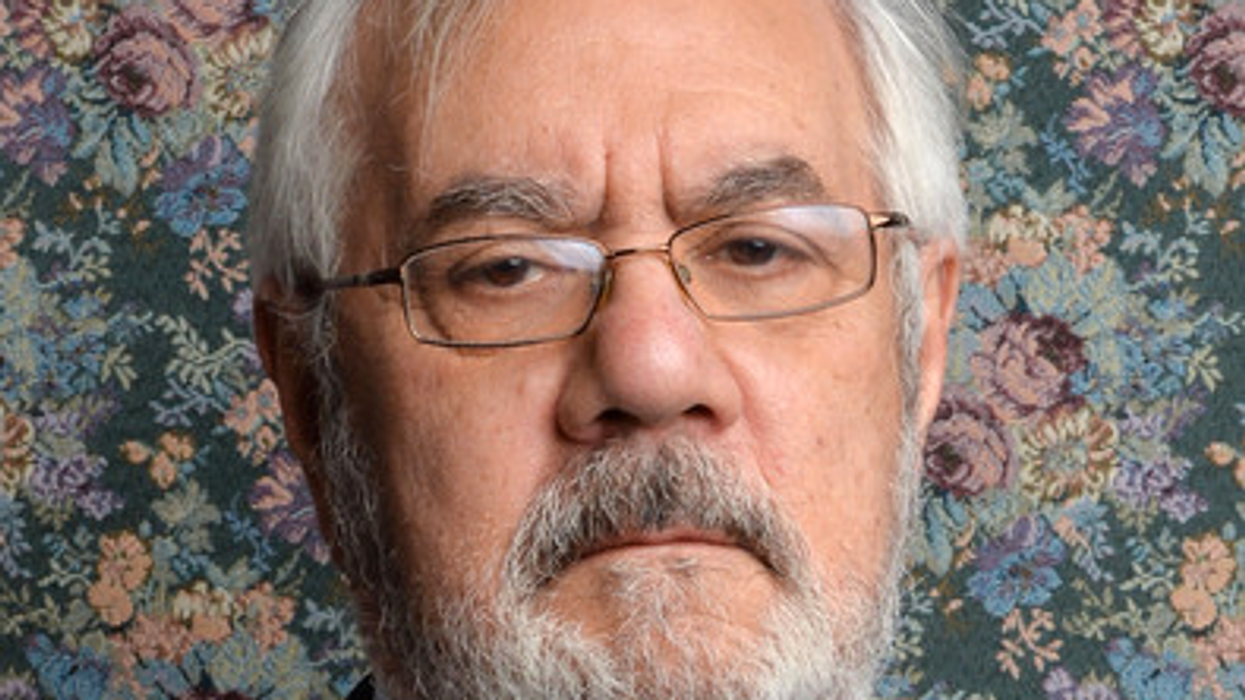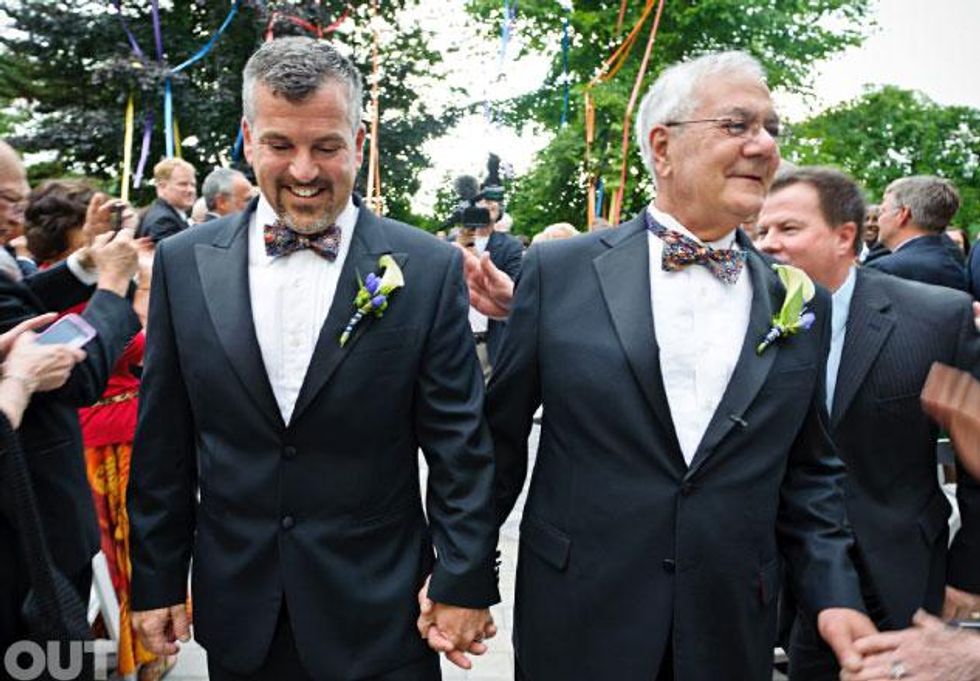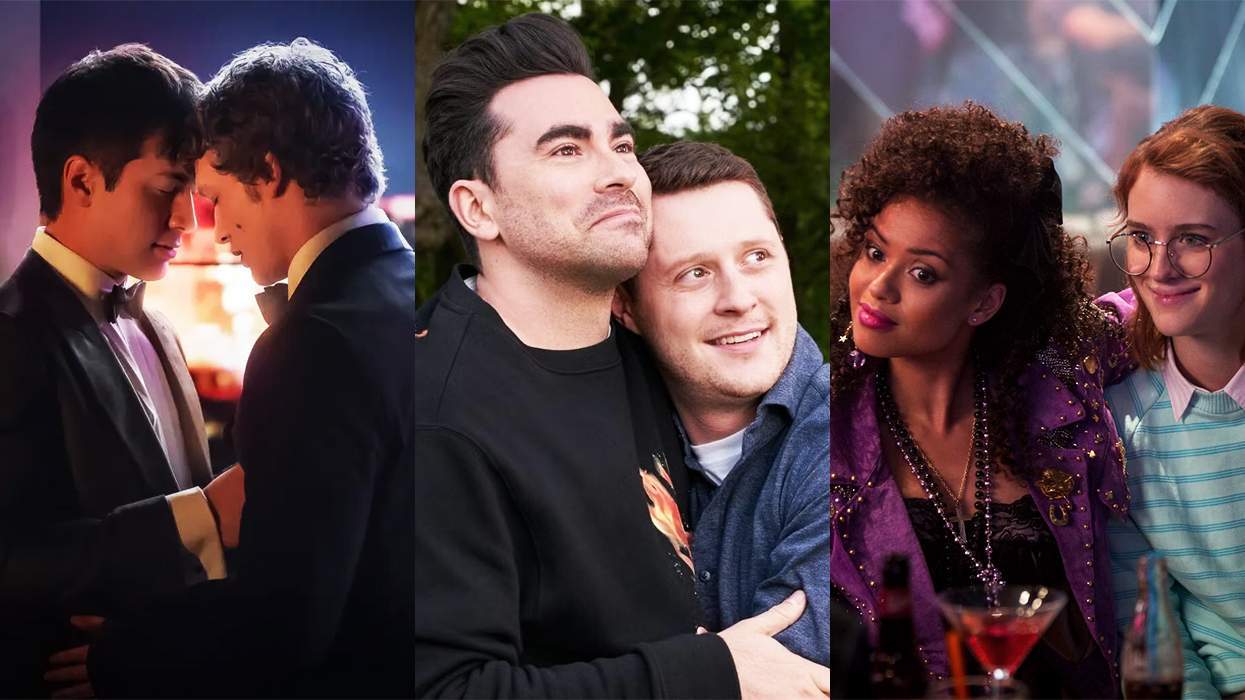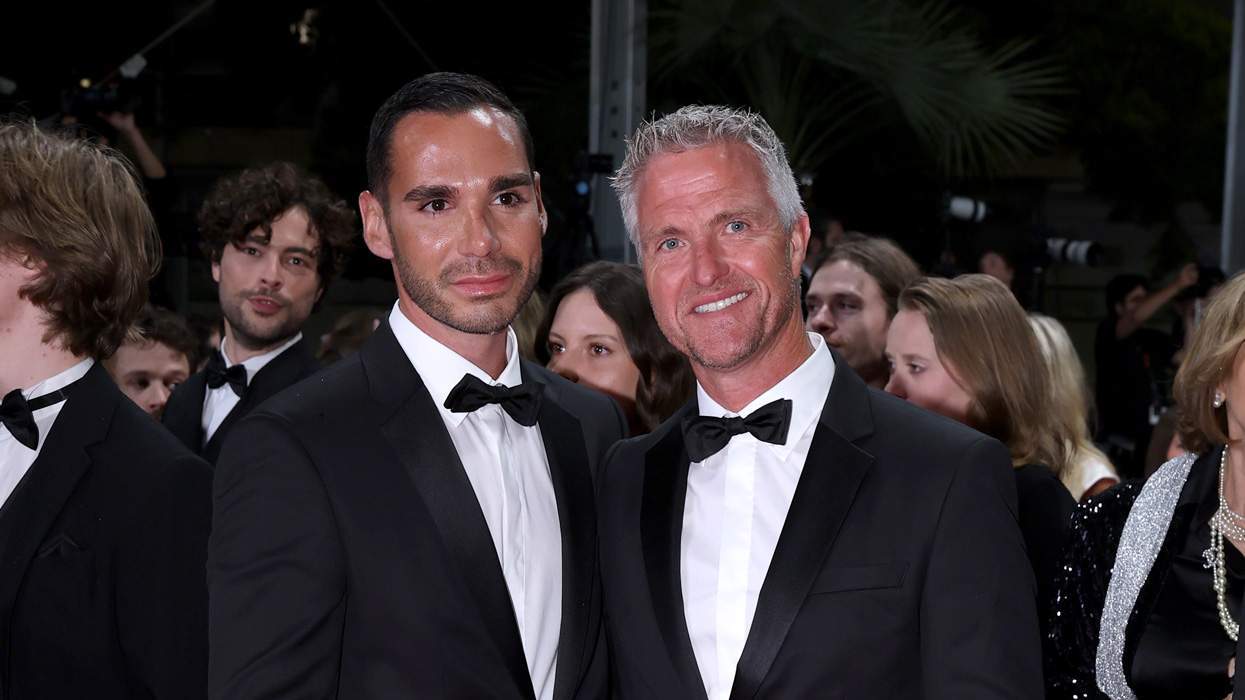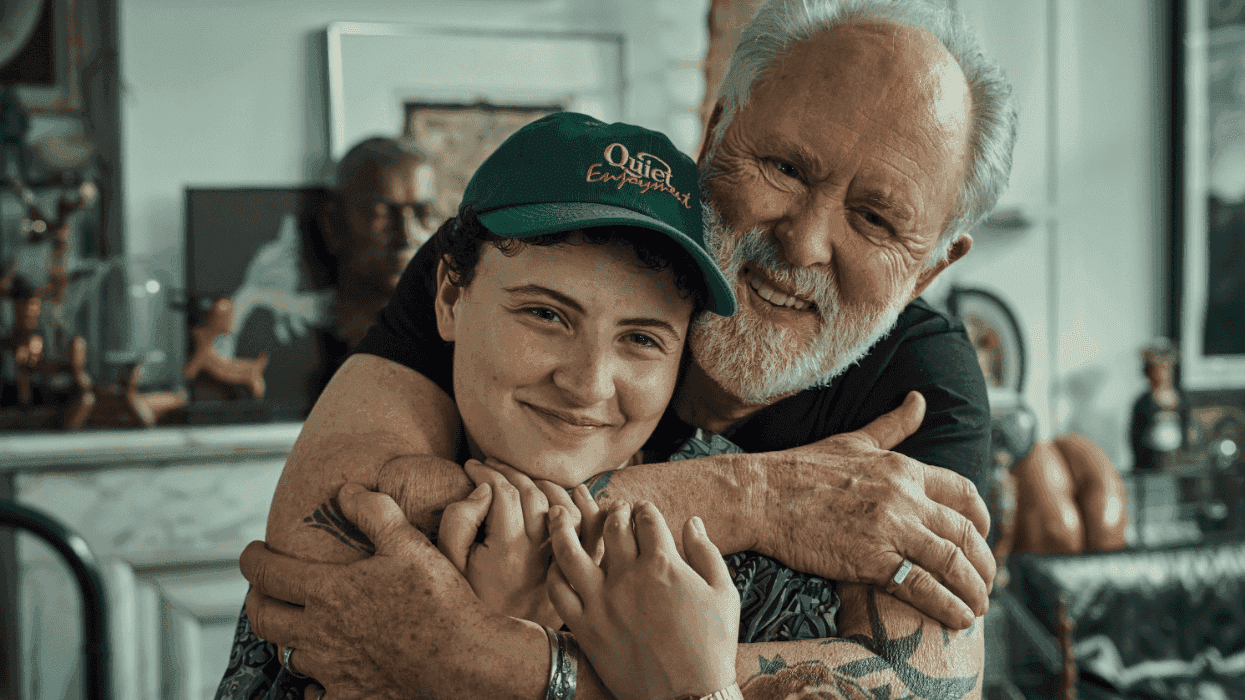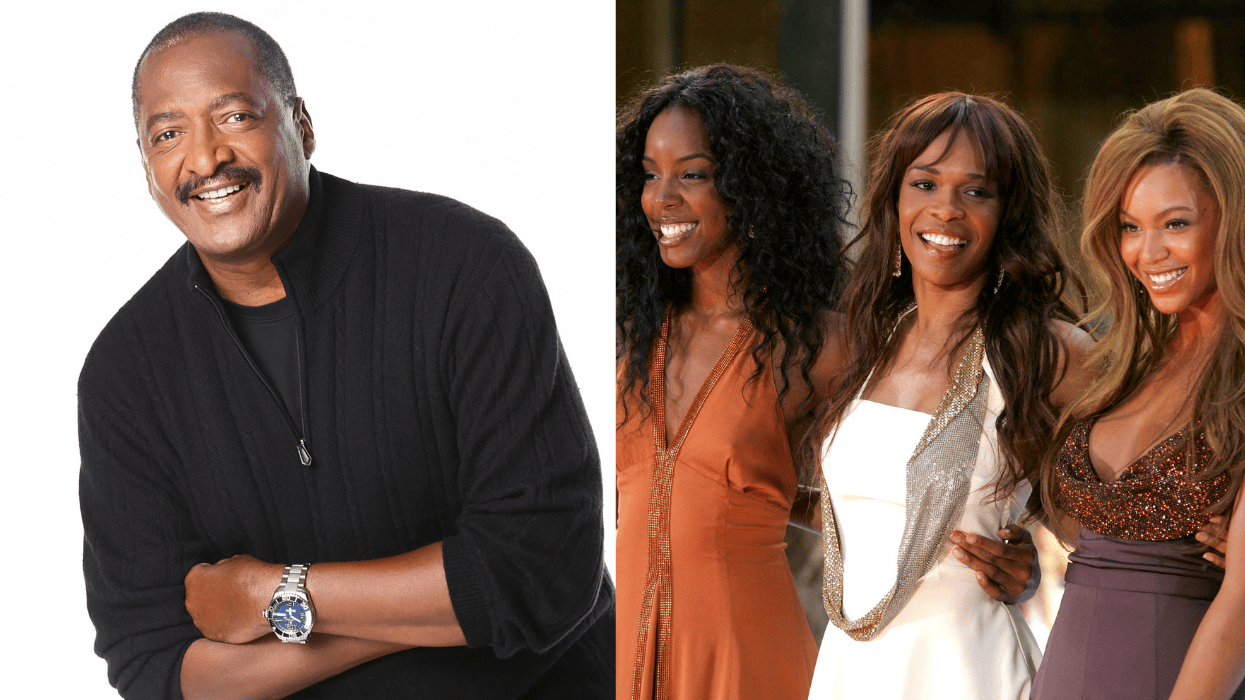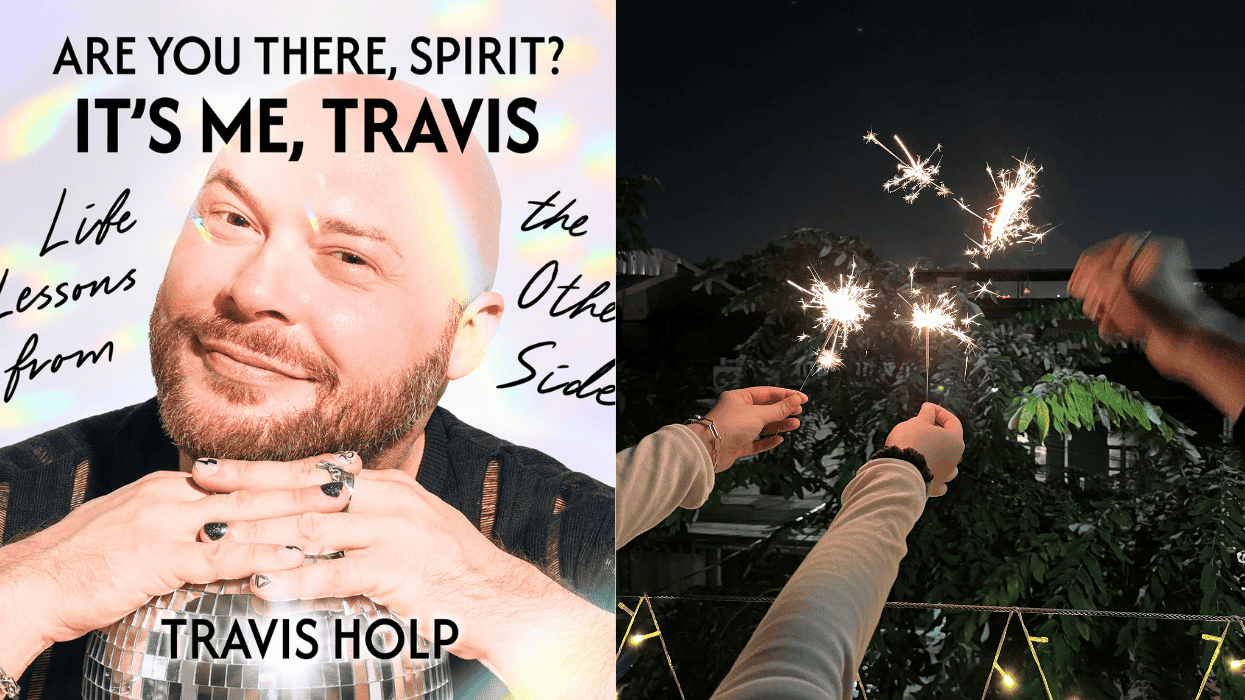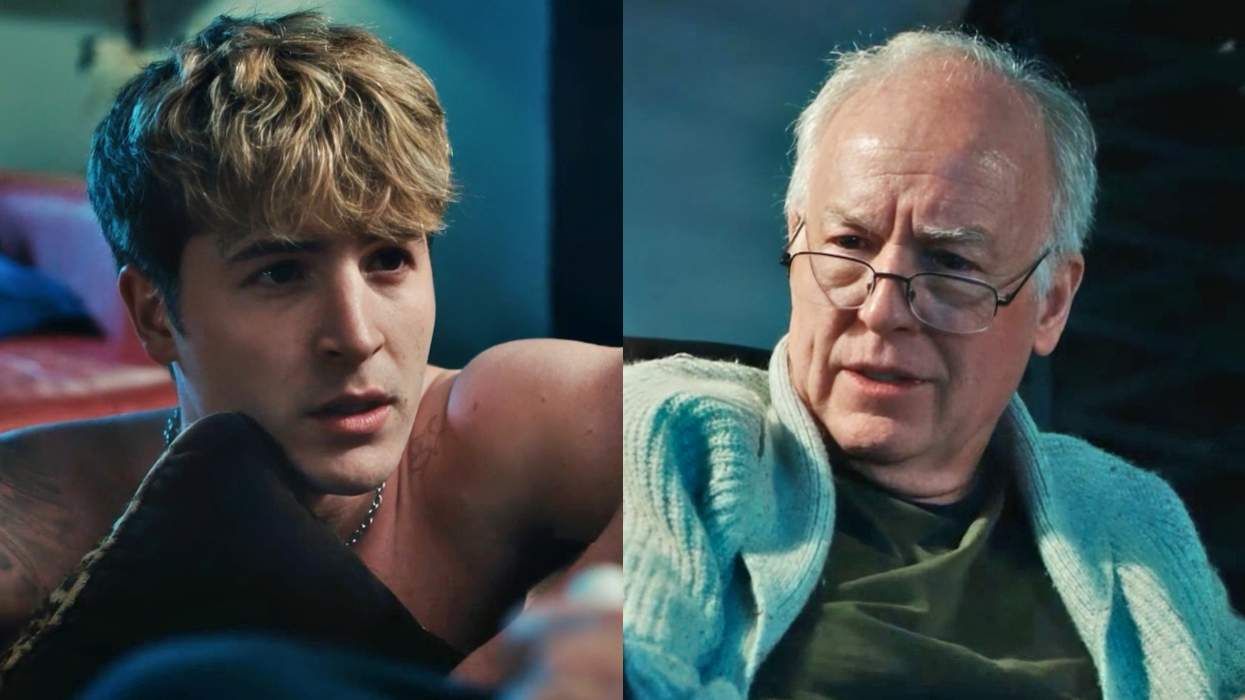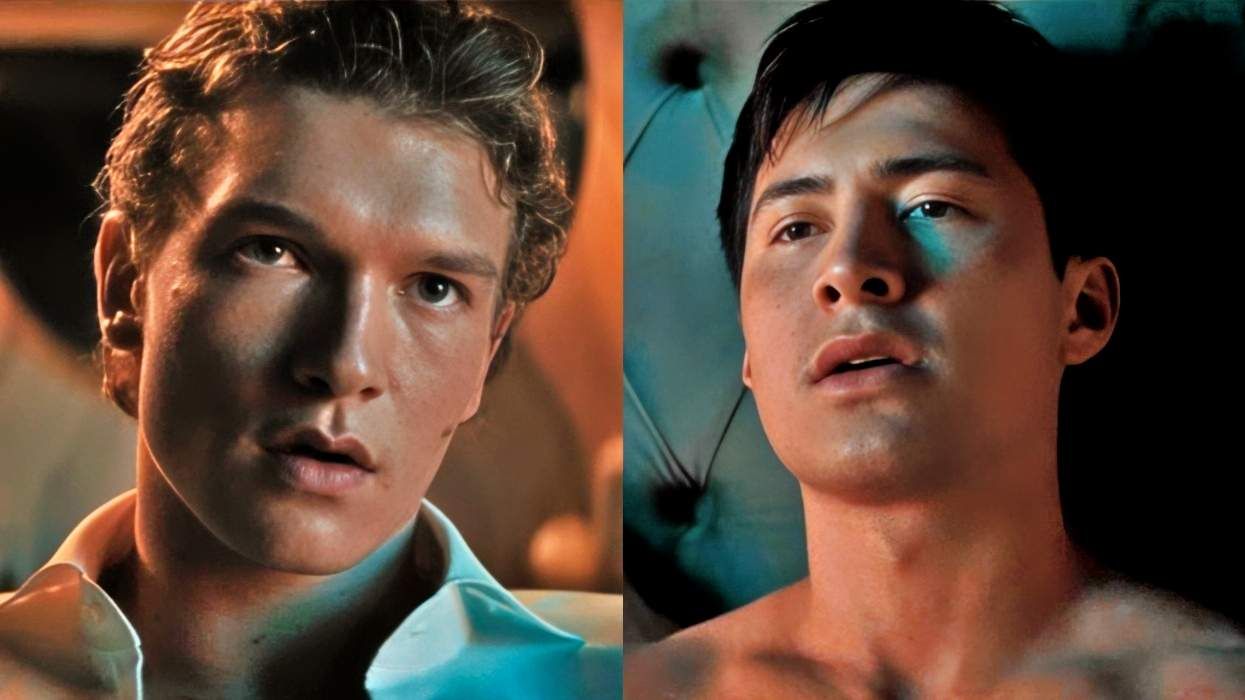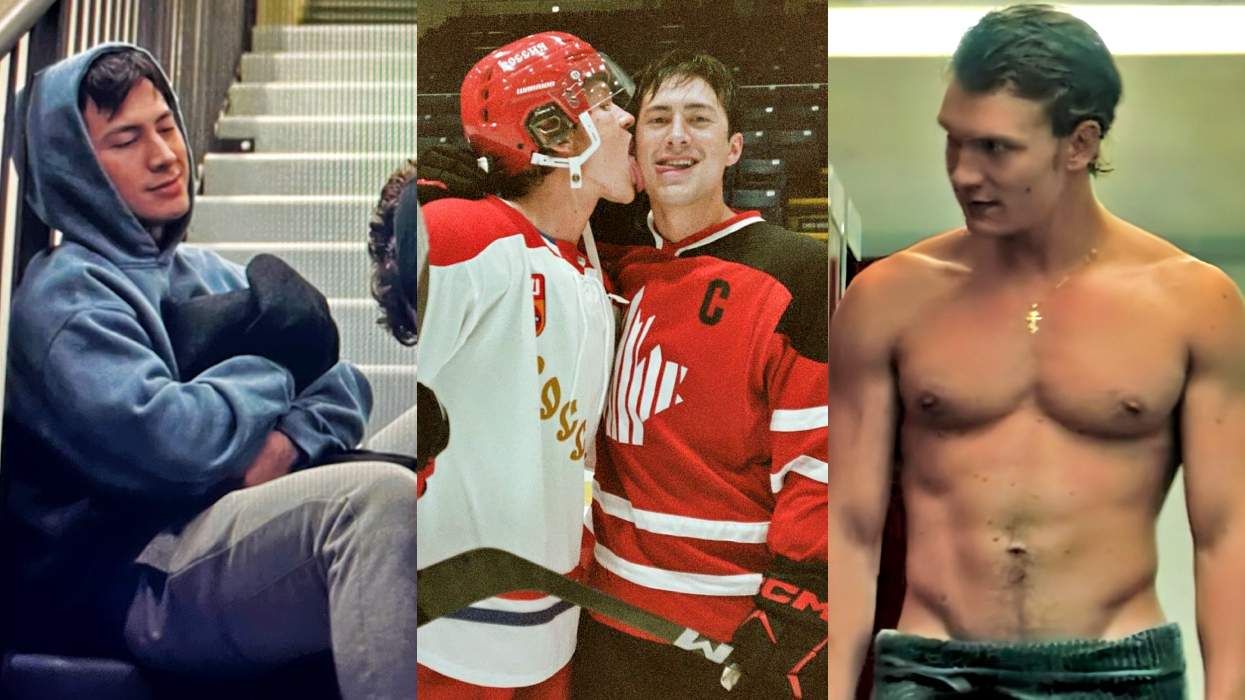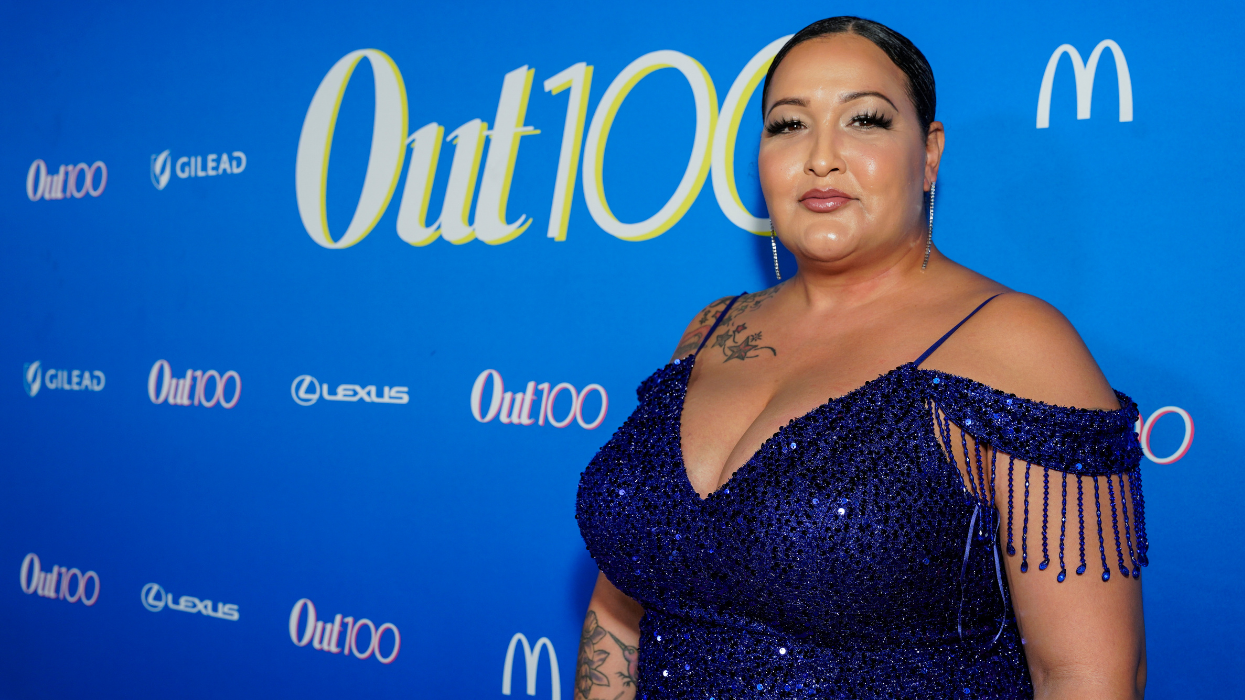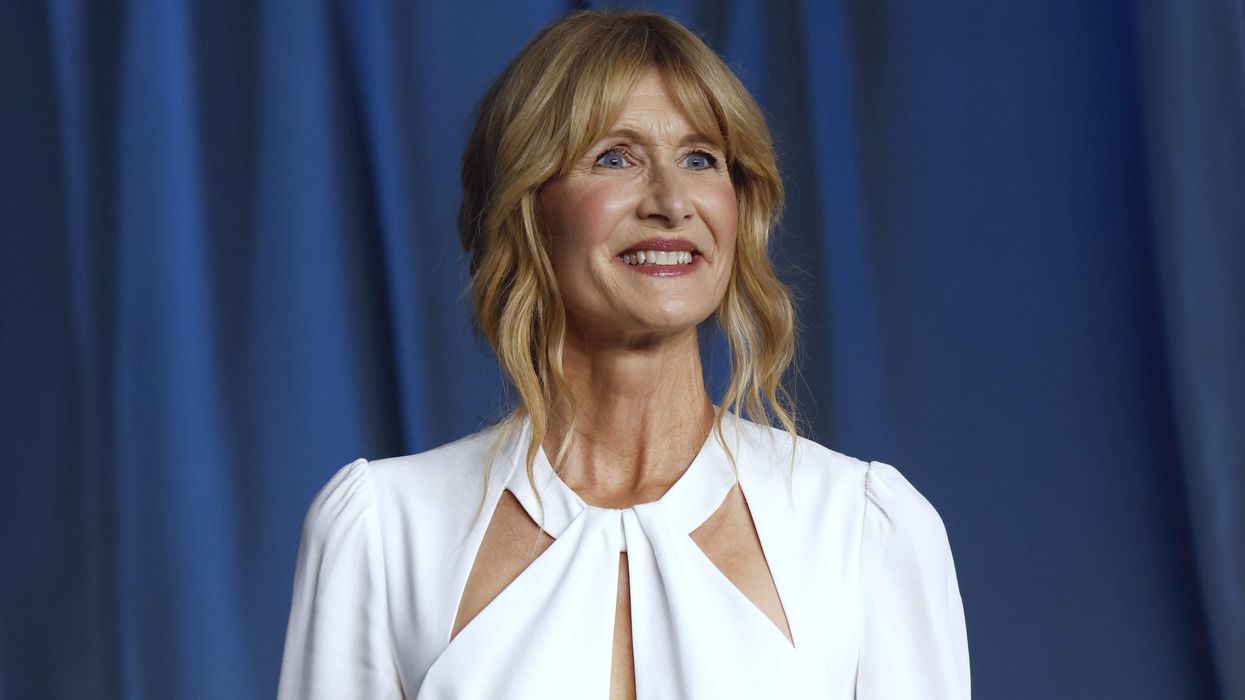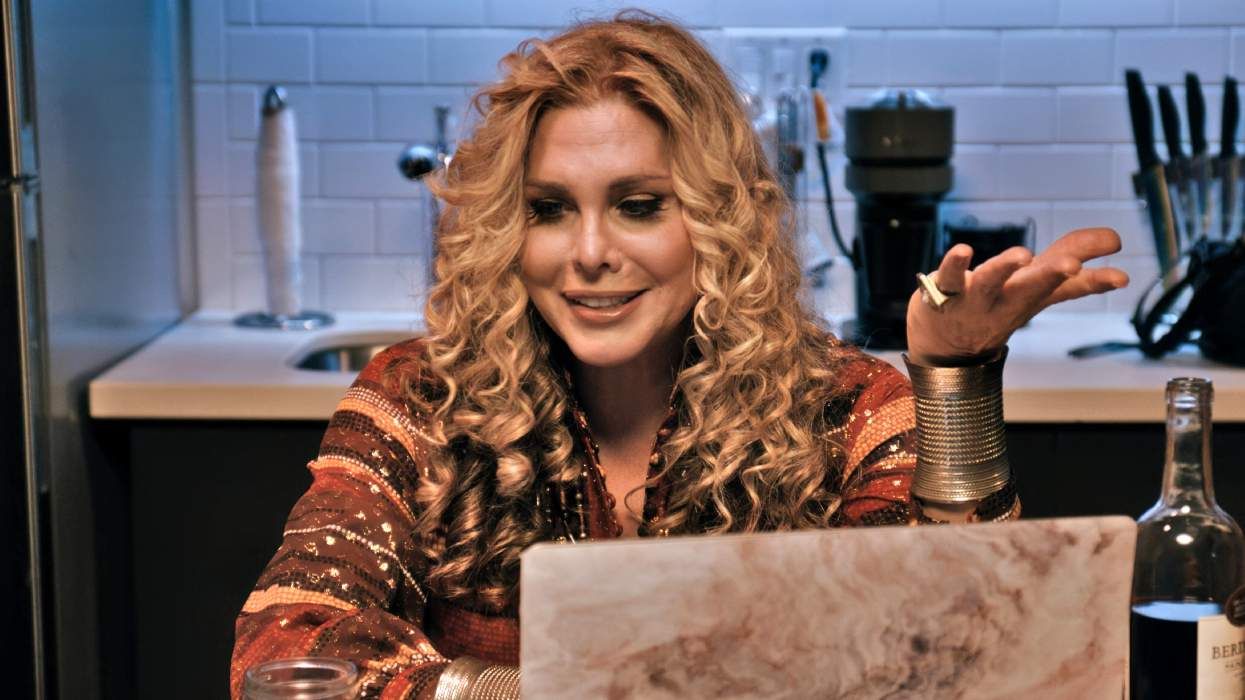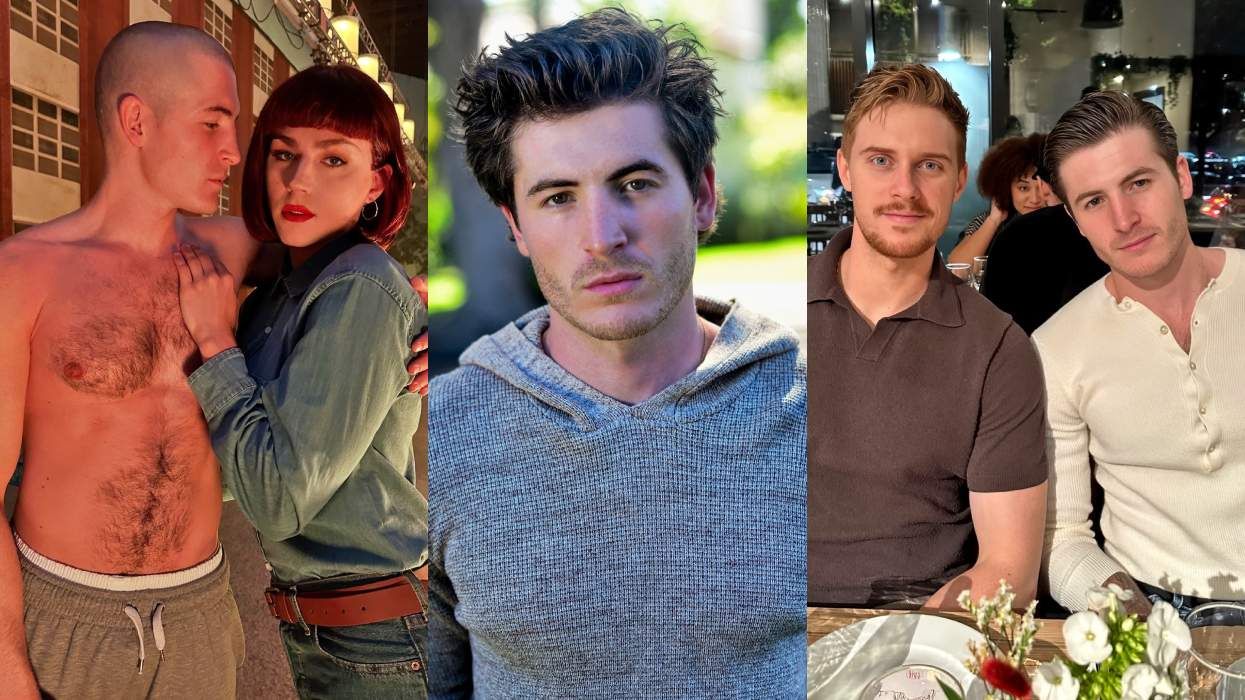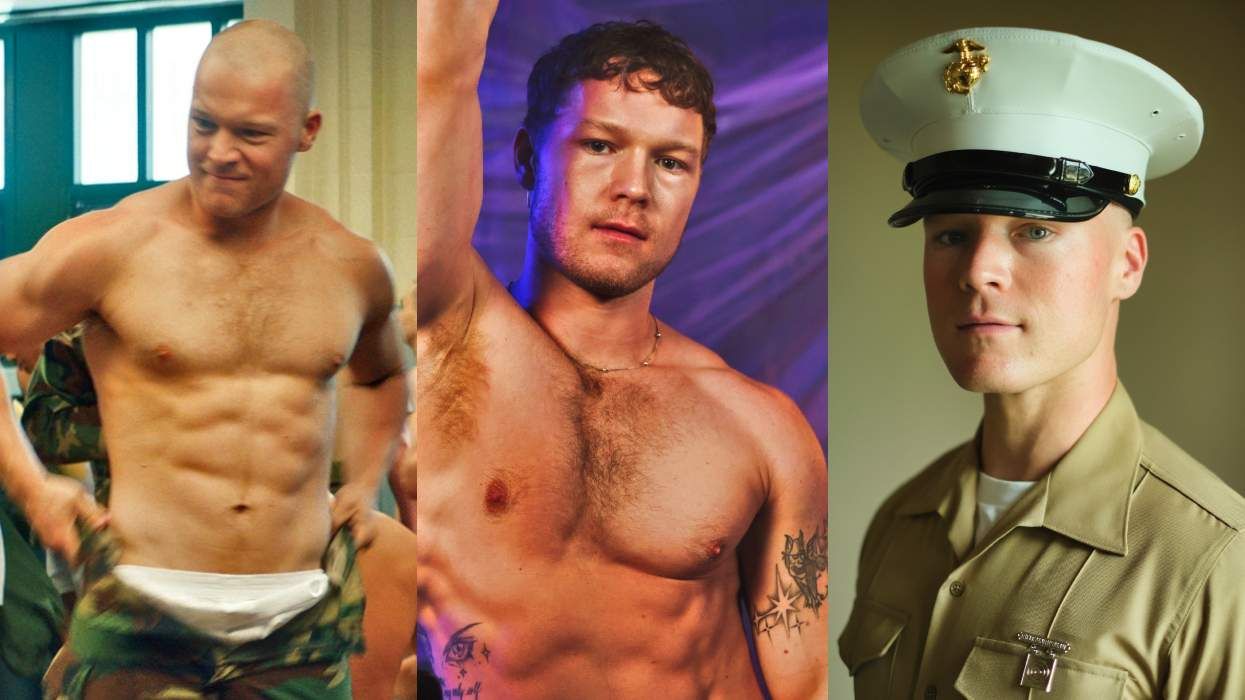Photo: Barney Frank poses for the TFF Getty Images Studio on April 25, 2014 in New York City | Andrew H. Walker/Getty Images
When political strategists feared that Barney Frank's always untied shoes, zaftig figure, and all the negative stereotypes associated with left handedness might ruin any chance of his bid for Massachusetts State Legislature, he addressed the issue head on with the campaign slogan: "Neatness Isn't Everything." It was honest, funny, and pragmatic. He won.
These qualities, along with his undeniable passion for social justice, shrewd legal mind, and bravado enabled Frank to become a leading voice in Congress, for 16 terms as a congressman. The first openly gay Congressman and first to marry someone of his same gender while in office, the Honorable Barney Frank stepped down to try and gain some balance in his life. We spoke about his second career as a political pundit, speaker, columnist, and subject of a new documentary Compared to What: The Improbable Journey of Barney Frank, as well as the challenges of working with a new generation of LGBT advocates, importance of humor, greediness of C-Span, and his wedding loot.
These are excerpts from our audio interview for my Employee of the Month Show podcast. Please note: I want to preface that I didn't transcribe our interview in full. As Jeffrey Toobin wrote when he profiled Barney Frank for The New Yorker: "Frank never speaks from a prepared text, and he talks so quickly that transcription is nearly impossible."
Catie Lazarus: Do you prefer to go by Congressman?
Barney Frank: No, I'm not a Congressman anymore. I don't understand why titles take you to the grave. I think people ought to be called what they are.
Do you still feel honorable?
Yes, but not because I was given the formal title. I just try to live my life honorably.
I wanted to talk to you about using humor to put people in their place and how it was essential to your job?
It's very helpful. The funniest single line I've heard in politics came from Hollings, but not from [Senator] Fritz Hollings, but from his wife Peatsy. Senator Hollings and his wife arrived in the early hours of the morning for him to give a speech a few hours later. They were trying to get some sleep when the phone rang. A voice on the other end, obviously an organizer, nervously said, "Is this the Hollings suite?" Peatsy turned to her husband, and said, "Honey is your name Hollings?"
For humor to be useful to a politician it has to include a very significant self-deprecatory element. Constantly just making fun of other people means you're mean. People don't like mean people. Humor [can] increases your likability. Likability is very important when you're trying to get people to vote for you.
Secondly, it is a good way to deflate others--once you have made clear that you are a target yourself.
It is a particularly useful way to tag people with something that's memorable. People hear a lot of political arguments. To the extent that you can make something funny, while underlining your point, you give that comment some life.
But the main reason you do it is to keep your sanity. When I say something funny, the first person who hears that funny thought is me. It kind of relaxes me.
There is one other element I should mention that gives you [as a politician] an advantage over comedians. It is easier to get a reputation for being funny when you are mostly in venues where people aren't expecting you to be funny. It is harder when the audience is saying, 'I paid good money to laugh, you better make me laugh.' There's almost skepticism. Where as in politics there's an expectation that people are going to be grave, maybe pompous, possibly boring.
The ultimate triumph is to have it quoted to you later on. One of the most successful for me happened during the Reagan years, when he was pressing to outlaw abortion, while moving to outlaw virtually every program, which helped poor children. I said, "From the Republican standpoint, as far as the government was concerned, life began at conception and ended at birth."
Do you think that C-Span owes you some residuals?
I'm very disappointed to learn that C-Span has been charging a lot of money. They get this right to broadcast things publicly and a couple people just did a documentary about me. C-Span was charging them a lot of money for public performances. I don't think C-Span ought to be allowed to charge the amount of money they've been charging to share things they got with their publicly funded monopoly.
Having watched C-Span I think they should be paying us to watch them, so I'm angered on that front as well. Once LGBT rights became thought of as a Civil Rights Issue, it gained momentum. You've said that a lot of the younger folks you were working with weren't familiar with the Civil Rights Movement's tactics?
Right. In fact, it was even worse. It's a problem when people don't know something. It's often a greater problem when they know something that wasn't true, when they have a mistaken view.
Obviously it's a civil right. But it's a different kind of a civil right. Obviously the discrimination [toward] those of us who are gay, lesbian, bisexual, and transgendered face is a problem. It has never reached the dimensions of slavery. We were not slaves, at least not involuntarily.
There's only one area I've said where younger gay and lesbians people had a problem black people didn't face. No black kid had to tell her parents that she was a black. That's the trauma that she escaped. No black girl had to come out and tell her parents that she was black.
The mistake that many in LGBT movement made was to have this image of the movement for racial fairness as one, which just one day demanded what needed to be done and it was done. The notion that was there was never compromise. The Civil Rights Movements first cases didn't challenge segregation. They were litigating within the framework of acceptance of 'Separate but Equal.' And there were several Civil Rights Bills. There was Civil Rights Bill in 1964. There was the Voting Rights Act the next year. We didn't get a fair housing bill banning racial discrimination in housing until 1968, after the murders of Robert Kennedy and Martin King Jr. So that's my problem.
The other thing is that the great models of demonstration and civil disobedience, the progenitors of that, first Gandhi, and then Martin Luther King Jr. as his conscious student, began when people leading those movements represented people who could not vote. So demonstrations were the only way to go.
Once we got the Voting Rights Act in 1965, the focus of much of the Civil Rights Movement shifted to people using their political rights as a more effective way of doing things. Those were aspects of the Civil Rights Movements that a lot of gay and lesbian people didn't understand. There's a great book written by Taylor Branch about King, Parting the Waters, in particular, but it's two volumes, all about King's strategic and tactical choices and compromises. The anguish he felt be because he had to sometimes back down. There was a subtlety and a political sophistication married to his moral imperative that a lot of younger gay and lesbian people just assumed away.
What are the key issues now for LGBT?
The single biggest one is protection against people being fired. You can be fired if you are gay or lesbian in most states. We really need a national law passed to protect people from being fired because of their sexual orientation or gender identity.
In Compared to What, the new documentary about you, they show your home in DC and said how isolating it was. They were trying to foreshadow how you lived this double life, and that you had trash bags on your windows.
That was to keep the light out. I just didn't get around to putting up shades or curtains.
You were the first sitting Congressman who was gay to get married while in office. What were some of the gifts that you got?
Some very nice things Vicky Kennedy gave us a copy of a painting that her late husband Ted had done. Bono gave us a signed portrait of one of his campaigns for Africa.... Our next door neighbor gave us a couple of very lovely wine goblets.
Have you gotten all your thank you notes out?
No.
Catie Lazarus hosts the live show and podcast Employee of the Month. Follow Catie Lazarus on Twitter.


